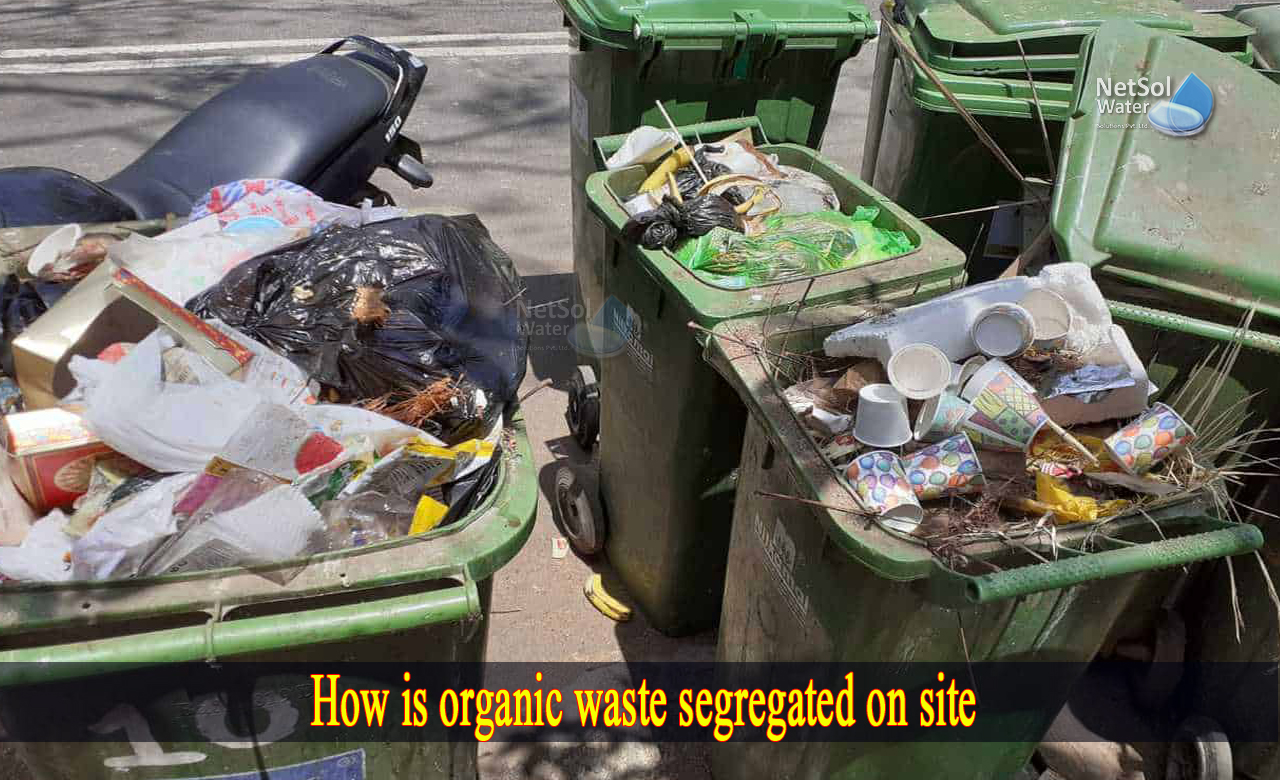Introduction
With so many dumpsites and bodies of water laden with hazardous waste emitted from industry and other sources, the planet is turning into a waste dump. Pollution levels in the air, water and land are increasing, necessitating not just the efforts of a specific task force, but also those of every citizen. Netsol Water has launched a Green waste recycler called Domestic Food recycler that lowers and recycles various types of organic food waste into reusable by-products to promote and establish a stepping stone for individuals.
What is organic waste?
Organic wastes include fruits and vegetables, rice, dairy products, plants, legumes, poultry and fish, bones and remains of deceased animals, paper goods, tea or coffee filters, yard debris, and so on. When these wastes are transformed into compost or fertilizers, they may be used to generate fuel and energy.
What is waste segregation?
Waste segregation is the process of separating waste into different parts. It is simply separating your waste's wet and dry waste, with the goal of conveniently recycling dry waste and using it as compost. When waste is separated, it decreases air and water pollution while also reducing landfill space and occupied areas. This segregation process must begin at the individual level. It must be gathered through systems such as curbside pickup.
How is organic waste segregated on site?
1. Identify waste types: Waste comprises single-use plastic, rotting fruits and vegetables,garments, glass items, landscaping and pruning debris, and so on. Some waste is tossed directly, while others are wrapped in cellophane paper (thin plastic sheet), weaving in a thread (garland), and more.
2. Sort waste into biodegradable and non-biodegradable categories: Thrown-away items such as fruits, clothing, milk, and so on fall into the biodegradable group, whereas plastics, packaging materials, and so on go into the non-biodegradable category.
3. Separate waste into reusable and non-reusable categories: Once the wastes have been identified, they must be separated into reusable and non-reusable categories.
Steps to turn organic waste into useful and reusable items
1. Place Waste in Netsol's recycler model: After segregation, biodegradable waste is placed in our green waste re-processor machine, which converts discarded refuse into organic manure especially the food waste.
2.Use Organic Manure: Because manure is a rich source of nutrients, the organic manure produced by the machine can be utilized at farms with garden areas, or it can be sold.
Conclusion
Today, India creates approximately 72 million tonnes of waste per year, with organic waste accounting for 51 percent of total waste created. Organic waste comprises flowers, cooked food, rotting fruits and vegetables, paper, and other materials that contribute to greenhouse gas emissions from landfills. This dangerous gas emission can be reduced by avoiding the landfill by disposing of organic waste. Netsol Water has made an effort to make our surroundings more environmentally friendly by installing food recyclers or organic recycler machines to decrease organic waste.
Our goal is to install as many recycling machines as possible in order to produce a healthy, safe and long-lasting environment. Furthermore, waste segregation is critical for producing clean, pure and inexpensive organic manure with high advantages and no negative environmental repercussions.
Netsol Water is Greater Noida-based leading water & wastewater treatment plant manufacturer. We are industry's most demanding company based on client review and work quality. We are known as best commercial RO plant manufacturers, industrial RO plant manufacturer, sewage treatment plant manufacturer, Water Softener Plant Manufacturers and effluent treatment plant manufacturers. Apart from this 24x7 customer support is our USP. Call on +91-9650608473, or write us at enquiry@netsolwater.com for any support, inquiry or product-purchase related query.



